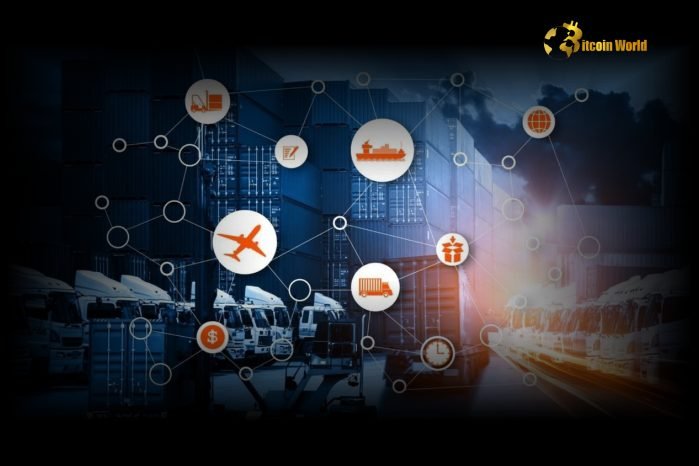Revolutionizing Supply Chains: The Game-Changing Impact of AI
The advent of artificial intelligence (AI) is transforming industries globally, and supply chains are no exception. As companies adopt AI to improve efficiencies, reduce errors, and mitigate risks, they are reshaping supply chain management to meet modern demands. Yet, despite AI’s advantages, integrating it into supply chain operations presents challenges, from technical limitations to organizational resistance.
In this article, we explore how AI is changing supply chains, its key applications, and practical strategies for businesses to overcome integration challenges and maximize AI’s potential.
What is AI?
Artificial intelligence (AI) simulates human intelligence, enabling machines to perform tasks like problem-solving, decision-making, and learning. By combining technologies such as machine learning, natural language processing, and computer vision, AI powers advancements across industries, with the global AI market projected to grow from $184 billion in 2024 to $826 billion by 2030.
How AI is Shaping the Future of Supply Chain Management
With a decade of experience in the supply chain industry, I’ve seen firsthand how AI is streamlining complex processes, optimizing decision-making, and enhancing communication. Here are the primary ways AI is revolutionizing supply chains:
1. Distributed Communication with Suppliers
In traditional supply chain setups, managing multiple suppliers is often time-consuming and prone to errors. AI-powered personalized assistants automate these interactions, standardizing communication and minimizing misunderstandings.
For instance, if a shipment delay occurs, an AI assistant can instantly notify suppliers, suggest alternative shipping solutions, and adjust timelines, ensuring that all parties are informed and aligned on new expectations.
2. Automated Order Operations
AI-driven automation is simplifying order management by replacing manual purchase order (PO) processes. Supply chain managers can now issue commands like “Create a PO for 500 units from Supplier X,” and the AI assistant will pull relevant data on pricing, order history, and terms, generating and sending the PO instantly. This system is especially beneficial in high-demand sectors, such as fast-moving consumer goods (FMCG), where teams face constant pressure to meet tight deadlines.
3. No-Code Reporting for Real-Time Insights
No-code reporting solutions allow supply chain leaders to access insights without technical expertise. With a simple prompt, such as “Show cost savings by supplier this quarter,” AI systems can generate custom reports on key metrics like supplier performance, order accuracy, and sustainability.
4. Risk Mitigation with Predictive Analytics
AI’s predictive capabilities are valuable for risk management, enabling companies to anticipate potential supply chain disruptions. By analyzing historical demand patterns and market variables, AI can detect signs of possible delays, stock shortages, or transport issues, allowing supply chain managers to adjust procurement strategies in advance.
For instance, if AI anticipates a seasonal spike in demand for a product, it may recommend increasing stock levels or accelerating shipments from suppliers, minimizing the risk of shortages.
Challenges in Implementing AI in Supply Chains
Despite its benefits, implementing AI in supply chains is not without hurdles. Organizations face various obstacles, including outdated infrastructure, data fragmentation, and resistance to change, that can delay or limit the effectiveness of AI integration.
Outdated Systems: Many companies rely on legacy systems and siloed data, which can impede AI’s ability to provide real-time insights. For instance, integrating AI with inflexible ERP systems often requires custom development, which can be time-intensive and costly.
Data Quality and Consistency: AI relies on accurate data for effective decision-making. Inconsistent or inaccurate data can reduce the precision of AI predictions, making it difficult for supply chain leaders to trust AI’s recommendations.
Organizational Resistance: Employees may resist AI adoption due to concerns about job security or a lack of technical expertise. This resistance can hinder the efficiency gains AI offers, particularly in areas like automated reporting and order management.
A Guide to AI Integration in Supply Chains
To unlock AI’s potential, organizations must adopt a structured approach to AI integration, prioritizing both technological and organizational readiness. Here are key strategies to streamline the process:
1. Conduct a Supply Chain Assessment
Before implementing AI, assess the entire supply chain to identify areas for improvement. This step helps clarify where AI can add the most value, whether through automating order processes or enhancing risk mitigation.
2. Align AI with the Business Model
AI integration should align with the company’s business model. For example, e-commerce companies may benefit from AI that detects fraud, provides personalized recommendations, and adjusts pricing dynamically, while manufacturers might prioritize AI for predictive maintenance and real-time defect detection.
3. Establish a Data Strategy
A solid data strategy is crucial for effective AI integration. Ensure data consistency, accuracy, and accessibility by addressing data silos and reconciling fragmented datasets. Clean, well-organized data will improve AI’s predictive accuracy, supporting better decision-making.
4. Adopt a Phased Approach
Consider a gradual approach to AI deployment by starting with a trial project focused on a specific challenge, such as enhancing warehouse operations or improving demand forecasting. This phased approach allows companies to test AI’s effectiveness and gather insights before implementing it across the entire supply chain.
5. Collaborate with Experts
While some companies may attempt to integrate AI independently, collaboration with professionals can yield a higher return on investment. Partnering with AI specialists ensures that implementation goals are met, allowing organizations to track ROI effectively.
Conclusion
AI is revolutionizing supply chains, bringing greater transparency, efficiency, and risk management capabilities to the industry. By automating order operations, enhancing supplier communication, and providing real-time insights, AI empowers supply chain leaders to make data-driven decisions that optimize processes and minimize disruptions.
As organizations continue to adopt AI, a strategic approach to integration—supported by expert guidance, a robust data strategy, and a phased rollout—will maximize its benefits and accelerate transformation. For businesses ready to embrace the future, AI in supply chains offers a competitive edge in today’s fast-paced market.





